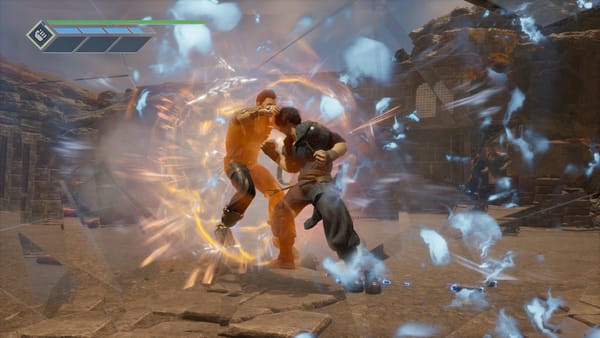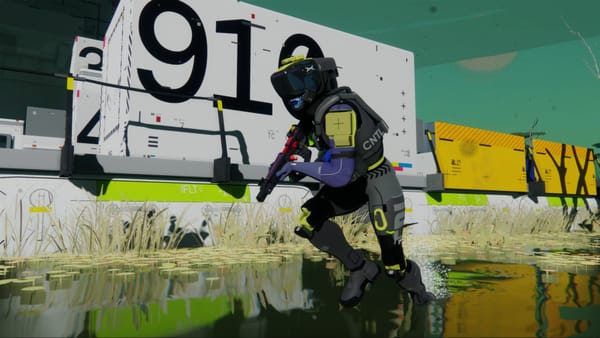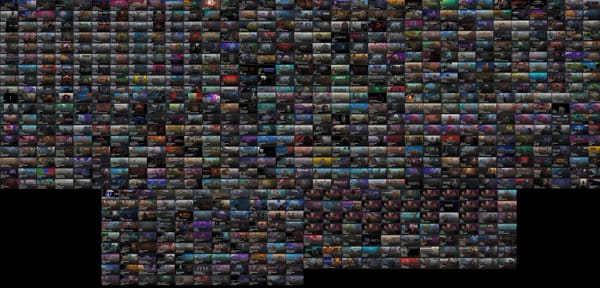#72: The dad-game problem
At E3 in 2016, I was in a roundtable presentation of Sony Santa Monica’s freshly announced God Of War reboot. And, rarely for me, I asked a question. I was struck by the stark tonal pivot on show; on how a series I’d always known for its out-and-out, over-the-top god-killing ultraviolence was now telling the supposedly tender story of said god-killer raising a kid.
Game director Cory Barlog had earlier spoken at length about his own experiences as a father, and how they’d informed the game’s direction. I asked him how confident he was that this would resonate with an audience that sees the name God Of War and thinks, right, I am going to rip Zeus’ eyes out of their sockets, and brutally sacrifice a young woman in order to solve a door puzzle. They may not, I suggested, be quite so interested in teaching Kratos’ annoying wee kid to hunt deer. Perhaps Barlog was putting a bit too much of his own reality in a game that had always succeeded by virtue of its ultraviolent fantasy.
Well, Barlog’s God Of War reboot came out in 2018 and we all know how that panned out. And in fact, I shouldn’t have been as surprised by it, or so skeptical of its conceit, as I was. There is a simple, marketing-level logic to what Barlog and co were doing: the audience that grew up ripping out Zeus’ etc and so on were now, in all likelihood, of parenting age themselves. Nor was God Of War the first of its kind: the dad-game era kicked off, to my mind, with the first season of Telltale’s The Walking Dead. In the nine years (god) since that original, quintessential dad-game came along, there have been countless big-budget games about dads struggling to be dads, and particularly in reconciling their struggle to be a dad with their day job of killing things. Dad-games are just part of the furniture these days.
But! Time marches on, and all that. We all just keep getting older, and the demographics are changing all the time. The dad-game, as envisioned by Barlog, Telltale, Naughty Dog and so on, is no longer enough.
A while ago a pal shared this tweet from veteran game journalist Arthur Gies, posted when the Halo Infinite beta was in full swing last month:
I didn’t really get it. I didn’t see those two games as competing. They’re notionally in the same genre, but several sub-genres apart; each has its hardcore audience, and their releases are far enough apart for fans of both to buy both. I reckoned that there was buzz around Halo because the beta was on, that there would be buzz around the Battlefield beta a couple of weeks later, and there would be buzz around both games when they each came out. I was confident there was plenty of room for the two to coexist. Plus ça change.
Then a pal pointed out that, actually, those games are competing with each other — in the sense that they both have to convince people to care about them in a post-Fortnite, post-Warzone, post-Among Us and Roblox and Minecraft world. And the scales suddenly fell from my eyes. There is another sort of dad-game: not games about dads, but games that are for dads — and mums and the childless too, of course, forgive me the lazy shorthand. They are for people of a certain age, rather than parents specifically.
In which case, holy shit, Halo and Battlefield are absolutely dad-games. It is 20 years since Combat Evolved. In the series’ first decade, five games were released. In the second, discounting re-releases and spin-offs, there have been just two (Infinite will be the third). What cultural cachet does Halo have among a Gen Z audience, or even a young millennial one? Does a new, premium-priced Battlefield move the needle all that much with the youth of today? I’m not convinced it does, and that strikes me as quite a problem.
It seems that the terms of engagement have shifted somewhat. It is no longer merely a question of how you make the latest sequel to a 20-year-old game relevant to established series fans who are now 20 years older. Now it is also about how you make those games appealing to the generation, or generations, below them. People who have very different expectations and aspirations for what games should look like, and feel like; for how they should present themselves, and what they might allow you to do.
I was reminded of all this yesterday by Forza Horizon 5, a game whose numerical subtitle makes clear its dad-game credentials, but has this weirdly split personality. It is a serious driving game for serious driving-game fans, but is dressed up in Gen Z clothes. Its character creator, while allowing for a welcome degree of fluidity and representation, ultimately insists you look like some flavour of Love Island contestant. There is incessant banter over bland shopping-centre dance music. Everyone is young and attractive and simply will not shut up, ever, because heaven forbid you concentrate on driving a very fast car. This is not a driving game, it says. This is a festival! A welcoming, inclusive celebration of… well, something! Go wild, have fun, express yourself! That said, you did just crash your car quite badly into the side of a building because we’re pretty finicky about torque and traction and braking distances and all that, and you have now lost the race.
All the people I know who are playing Forza Horizon 5 — most, admittedly, of dad age — are put off by this stuff. How many of the people that the game’s more Buscemi-esque elements are designed to attract are actually attracted to it? Is this really a game to bridge the generational gap, or simply one built in such a way as to irritate its real audience? These are difficult questions, and a difficult problem to solve. Forza, for all its qualities — I am enjoying it tremendously, set dressing aside — is clearly not the solution. Thank heavens for the mute button, eh.
MORE!
- Speaking of Forza Horizon 5, it has enjoyed Xbox Game Studios’ “biggest-ever launch day”, with over 4.5 million players. Is this that good, given Game Pass’ reported userbase of 30 million? I think it might prove my point, actually.
- Unity is to acquire the engineering operation at Weta, Peter Jackson’s revered VFX firm, for $1.625 billion. The proposed deal will see the existing company split in two: Weta’s 275 engineers will move over to Unity, while the VFX artists will work under a new entity, Weta FX, in which Jackson will hold a majority stake.
- Activision Blizzard has bowed to pressure and announced new policies for temporary and contract workers, including a higher minimum wage, paid holiday and sickness, and career growth and learning programmes.
- Arkane Lyon studio director Romuald Capron is headed for the door marked ‘do one’ after 17 years at the company. He is moving over to PowerZ, a French startup that makes educational games. Taking his place in Arkane Lyon’s biggest chair is Deathloop director Dinga Bakaba.
- Kyoto’s Q Games has secured from Sony the IP rights to the 2016 dystopian build-’em-up The Tomorrow Children. Most unlike Sony, this. Very surprising. Congrats to Dylan Cuthbert and co.
- Some follow-up from Monday’s slimmed-down Hit Points, and the news of Ubisoft giving pay rises to all Canadian staff in a bid to stop them all leaving for pastures new, which is becoming a bit of a theme over there. A reader has been in touch to point out that there is currently a severe backlog in the Canadian visa system: new applications from overseas are currently taking up to a year to process, making skilled workers already resident in the country more valuable than ever. A thank you to said reader, and a reminder to the rest of you that getting in touch with me is as simple as replying to a Hit Points email, and I always love to hear from you.
- Star Citizen developer Cloud Imperium Games has announced plans to build a huge new studio in Manchester, UK. Set to open next May, the building will initially house the company’s current 400-person team. By 2023, headcount will be 700; by 2026, a thousand. Great news for Manchester, which has eyes on being the UK’s next big tech hub.
- Here’s all the music that’s missing, presumably due to various licensing hoo-hahs, from the GTA Definitive Edition, which launches tomorrow.
- I do not have access to the Elden Ring beta and I am sad.
That’s your lot! Apologies if you now feel 100 years old, like me. Please do the usual thing with the buttons below, and I’ll see you all on Friday.





